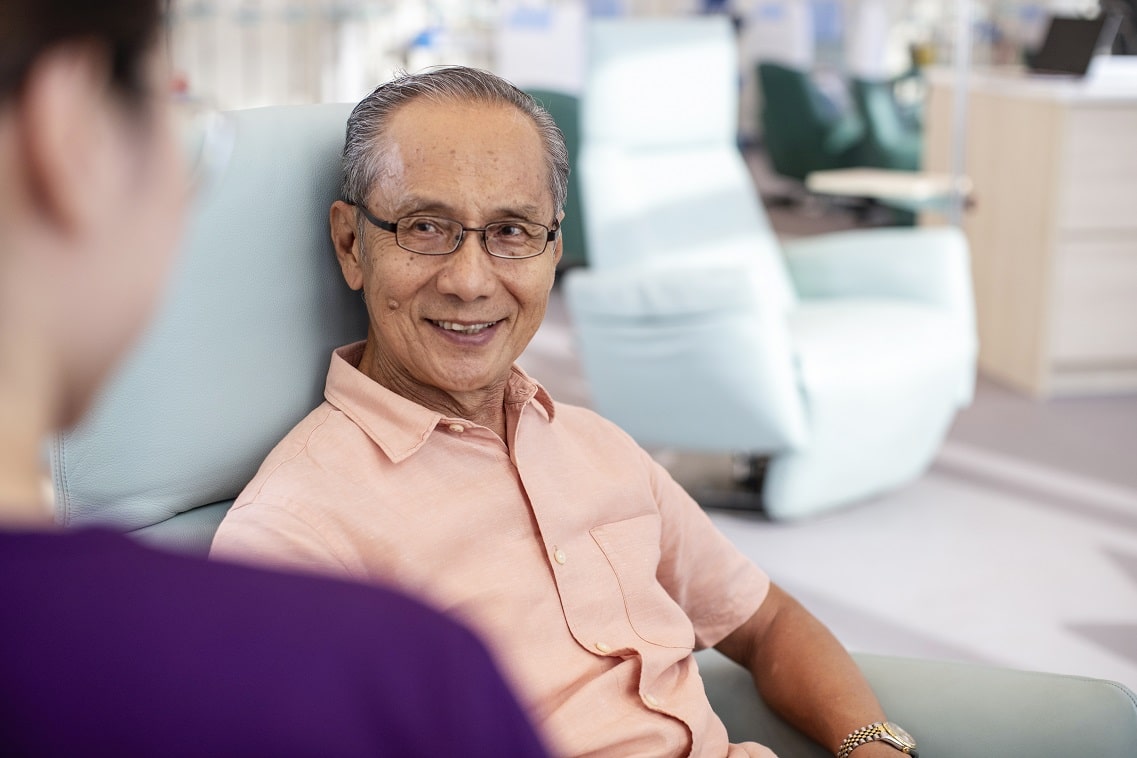During your first consultation, you will discuss your diagnosis and treatment plan with our clinical oncologist. You will have the opportunity to ask them any questions you may have, including possible treatment side effects and how to effectively manage them.
Your family and loved ones are an important part of your support network, we encourage you bring a support person with you during your visit to our centre.
To gain a strong understanding of your diagnosis, it is important to ask questions and a loved one can also ask questions you may not think of. Icon are here to support you and your family through your treatment.
